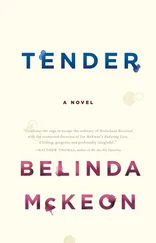‘What the hell do I want with the radio?’ Tom said, and what came into his head was the radio that Brady had shown him in one of the new tractor cabs. You could plug all manner of things into it, Brady had told him. There was nothing you couldn’t play through it, he had said. Tom had not asked him what he had meant.
‘Yeah, well,’ Mark said, and he sighed. ‘Anyway. Sorry. I just never trusted that guy Brady, that’s all. The prices he charges are ridiculous. But I suppose there’s nowhere else to go if you need a part.’
On his forehead and underneath his arms, Tom felt himself sweat. His heart was thumping. ‘Yeah,’ he said, and he wanted to hang up the phone.
‘So what was it you were looking for from him?’
‘Ah,’ Tom said, and as he shrugged, his shoulders felt like someone else’s. ‘Just a few bits for the Massey. Nothin’ much.’
‘It’s giving you trouble?’
‘Ah,’ Tom said. ‘The usual.’
‘I’ll take a look at it for you when I get down again,’ Mark said.
The room felt darker to Tom. It felt as though it had begun to move. ‘You’ll be down soon?’ he said, and he put a hand on the counter to steady himself.
‘Next weekend, maybe,’ Mark said. ‘I’ve a lot of work now.’
‘You won’t be down this weekend coming?’
‘Tomorrow?’ Mark said. ‘Ah, no. No way. Sorry.’
‘It’s all right,’ Tom said, quietly.
Mark said nothing for a moment. ‘We can get through a lot when I’m down next weekend,’ he said then. ‘You must have a cattle test coming up this month some time, have you?’
‘No.’
‘But they’re always around the end of October. Did Farrell not send you a card?’
‘I had one earlier in the month,’ Tom said, his voice so loud that the dog raised its head. ‘I’ll let you go.’
‘All right,’ said Mark, and he sounded uncertain. ‘Sure if you need help with that tractor before the weekend, I’m sure Sammy could help you.’
‘I’m sure he could,’ Tom said. ‘I’ll let you go,’ he said again.
It was not that Mark had been lying to his father. He had meant to get down to Dorvaragh the following weekend. It had seemed possible when they spoke on the phone: there had been the stretch of another whole week ahead. But by Wednesday it was obvious that he could not be out of Dublin, not even for a couple of days. There was too much to do. He was on a roll with a new chapter: if he left it, he would lose the rhythm of it. He could not afford to be away.
He could barely even afford, he felt, to be out of the house; even going to the library was a disruption, but it had to be done. Other things had to be cut back on; it was not always feasible to take Aoife for a walk in the morning. She was always in better form if he did, so he felt guilty, but he found that he wanted, needed, to get down to work earlier and earlier, and the walk always wound up taking an hour at the time of day when he felt his mind was at its sharpest. It made more sense just to put her in front of one of her DVDs. He had it down almost to an exact system by now. Each episode of the things she watched was twenty minutes long. She sat or stood in front of the television, absorbed, staring, dancing along, and she whined only if she caught sight of him, so he worked on his chapter in the kitchen. If she came in, whining, he would give her Cheese Strings, or a yoghurt, and he would carry her around for a while, or he would change her nappy, if it needed to be changed, and then he would put her in front of the television again. And that would take her up to her nap time, when she usually slept for almost an hour, and after her lunch, she was happy to watch the DVDs again. He had accumulated a huge pile for her — Mossy let him borrow them from the shop for nothing — and she barely had to watch the same thing twice in the same week.
Eileen from next door called around sometimes in the evening. She brought bread she had baked, or apple tarts, and sometimes she brought little presents for Aoife. Aoife loved her. She always wanted, the moment she set eyes on her, to play with her or to sit on her knee. She offered Eileen her toys; she shouted and pointed to the characters on the television screen as though wanting to introduce Eileen to her friends. Mark saw the way Eileen looked at the kitchen table now, covered as it was with his books and notes, and the way she looked at him as he sat there; he knew she disapproved. But it was only for a while. In a week or two, he would be done with this chapter, and things could go back to normal. He would take Aoife out walking, out playing; he would take her everywhere. Eileen always offered to take her into her own house and watch her if he needed to work, but there was no need, and he told Eileen so, and he thanked her. Even though he was busy, he wanted Aoife with him in the house. He knew it was important for her to have him there, in the next room. He wanted to be able to see her, to hear her, to hear the chatter and jangle of her programmes, even if the theme tunes seemed, by now, to be burning themselves into his inner ear.
If he had to go to Trinity to check on a reference or borrow a book, he brought Aoife along: it was a chance to take her out in the fresh air, and it was a diversion for her. They were used to the sight of her in the library by now: the security men greeted her at the entrance, and often someone came over from the reference desk to talk to her, to offer to keep an eye on her while Mark went down to the stacks or up to the fourth floor to get what he needed. They had a pile of children’s books she could look at, and it didn’t matter, they said, if they were torn or if she drew on them with the crayons they gave her: that was what they were for, those books. But he couldn’t remember seeing a child in the library before: he couldn’t remember, before Aoife, standing at the circulation desk and looking down to see, behind it, a baby sitting on the thin green carpet, scribbling with a red crayon on the page of a picture book. Though maybe he had not been looking, back then.
By Friday, he had a rough draft of the chapter and he wanted McCarthy to look at it. He left Aoife with the librarian and went upstairs to the English Department to leave the pages with Grace, the secretary. But when he walked into her office, Grace handed him an envelope. Mark looked at it, surprised. His name was written on it in black ink. ‘This isn’t Maurice’s handwriting,’ he said.
Grace shook her head. ‘No.’
‘Then who?’
‘Do you know Professor Clive Robinson?’ She pointed to the ceiling. ‘Used to teach in the philosophy department upstairs. He’s retired a couple of years now, but he’s still around a lot.’ She laughed. ‘Institutionalized.’
Mark did not reply. The name meant something to him, but he did not know what, not at first. At first, all he knew was that the sound of it took the air from his lungs and replaced it with a soreness; the soreness that meant Joanne. She had studied philosophy, but that was not it, that was not all — and then it came back to him. The day in the house in Stoneybatter: his first day to go back there after the crash. The day after his mother’s funeral. Joanne was still in Beaumont, still hooked up to the machines. She would need things, Mark had told himself; she would need things soon. He had gone back to the house to get her night clothes, and sweaters, and her iPod and some books. She would need books to read, he had told himself, and he had looked to the locker on her side of the bed. There were some novels, and a law textbook: Joanne had marked whole pages with yellow highlighter. And there was a philosophy book, and it had been heavily underlined too. Mark had been surprised by this. He knew Joanne had studied philosophy for a while in college, but she had never said anything to suggest that it was of interest to her still. He scanned the back cover: the book seemed to be about consciousness. He had stared at it. What had been her interest in consciousness? Had it been something to do with her work? He looked at the author’s name and read his biographical note. And it had been this guy. Clive Robinson. Mark had not heard of him before. He left the book on the bedside locker and threw a couple of the novels into a bag. He did not know where those novels were now. He did not know what he had done with that bag of things.
Читать дальше












